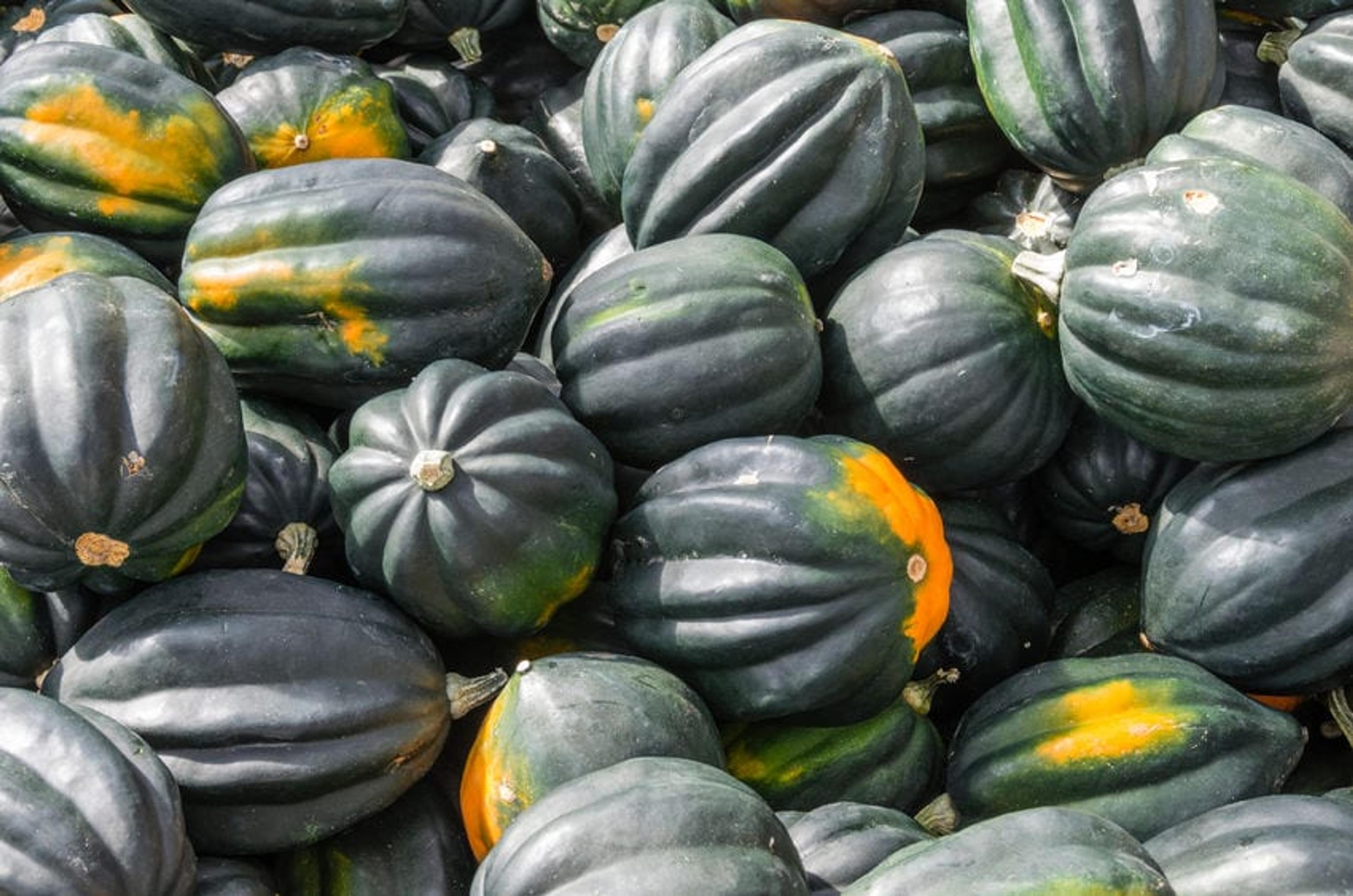Fall is the season for pumpkins, squash and gourds! Acorn squash is one of my personal favorites and I must say my kids prefer acorn squash over many other winter varieties! Acorn squash was a favorite of early civilizations as it could be baked whole in their outdoor clay and brick ovens. Although these fruits last for months in dry storage, preserving their freshness in a jar will ensure you may enjoy them well into the spring and summer months!
FUN FACT: Squash is actually considered a fruit, not a vegetable, because it contains the seeds of the plant. The pulp of an acorn squash is used as a soothing poultice on burns and inflammations or as a nourishing face-mask. The oil from its seeds are used as a nerve tonic. The complete seed is often used when creating medicine which expels intestinal worms!
Acorn squash is a good source of beta carotene, the plant form of vitamin A, which is necessary for preventing night blindness and for fighting infections. Acorn squash provides vitamin B6, complex carbohydrates, potassium, magnesium, folate, thiamine and dietary fiber. Better yet, Acorn squash is cholesterol free and each serving provides eight percent of the daily value of dietary fiber which helps lower your cholesterol levels.
As if those weren’t enough reasons to consume acorn squash, here’s another reason especially during this time of year! Acorn squash provides your body with necessary vitamin C helping you ward off pesky cold and flu viruses! A cup of acorn squash supplies your body with 25 percent of the daily value of vitamin C – a powerful antioxidant and a necessary nutrient for strong joints.
In addition to being healthy, it is a delicious accompaniment to any winter meal! Simply cut your acorn squash in half and scoop out all of its seeds leaving the pulp intact. Place in a glass baking dish and fill the bottom of the dish with a half-inch of water. Feel free to add a tablespoon of maple syrup to each squash half or simply season each half with a dash of sea salt and pepper. Cover with foil and bake at 400 degrees for one hour.
I often enjoy making a full meal with an acorn squash by filling each squash half with seasoned ground turkey meat! Simply mix your favorite seasonings and herbs with one pound of ground turkey meat and place equal parts of the turkey in each half of the squash. Cover with foil and bake at 400 degrees for one and a half hours. Serve your guests their own acorn squash bowl where they may cut and eat the turkey with a bit of squash in every bite.
When selecting an acorn squash to either eat fresh or preserve, be sure to choose those with hard rinds and those free from damage and mold spots! You will need about 2 ½ pounds of squash for every one quart jar. If canning in pints, 2 ½ pounds will yield approximately two pint jars. Whether baked in your oven or reheated from a jar on your stove top, be sure to incorporate this delicious fruit in your weekly meals this winter!












